News
Conversations on AI… the Podcast!
We now have a podcast, with hosts Armin Razavi and Stella Maude.
Episode 1 is available here.
Episdode 2, on the future of work, is here.
Episode 3, on AI governance, is here.
—
Speakers
Episode 1 ‘guests’ are the founders: Brian Ball, Annabel Gillard, and Tracy Woods.
Episode 2 guests are: Alysha Adams and Professor Chris Cowton.
Episode 3 guest is: Su Cizem.
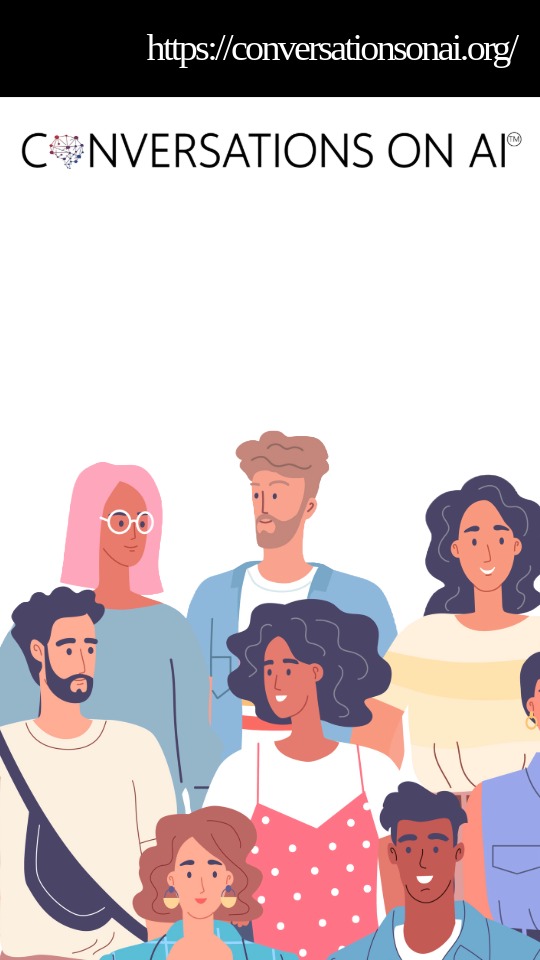
Upcoming Events
How do we ensure human wellbeing is at the core of AI development in Health Sciences?
February 10, 2026
Registration: here.
—
Speakers
Dr Lauren Adams (Associate Professor of Biological Sciences & Academic Practice at Northeastern University London)
Dr Roushanak Rahmat (Lead Data Science Consultant – AI, Automation & Analytics – Gen AI, IBM)
Mykay Kamara (Founder and CEO, Sentinel)
Workshop
Northeastern University London, Devon House, 58 St Katharine’s Way, London E1W 1LP, United Kingdom
Past Events
Open Mic Night!
November 25, 2025
We hand the mic over to you – share your thoughts, successes or concerns on how we keep humans at the heart as AI transforms our world.
Speakers
The Conversations on AI community!
Workshop
Northeastern University London Start-up Hub, 9a Crosswall, London EC3N 2JY
Image: Natalie Webb
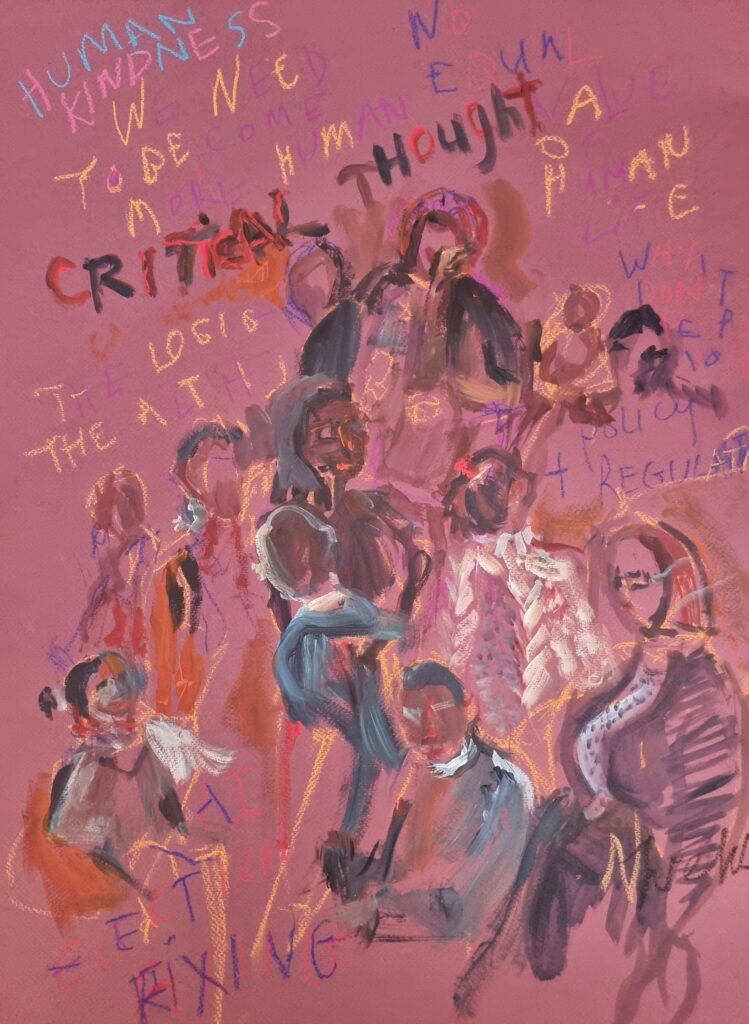
How should shareholders balance return and responsibility when investing in AI?
July 15, 2025
Be part of the discussion about what sort of AI assurance investors should focus on, how should companies (and their shareholders) balance the need for assurance and responsibility, with the pace of change and stay competitive. What role do regulations, consumers, standards-setters, and investors have in guiding that balance and what ‘good’ looks like. Whether you are an entrepreneur, software developer, investor, policy, or interested bystander – come and share your perspective on how we can get this right together.
Join us to discover how responsible AI practices directly influence investment decisions and their role for sustainable business growth in the AI era.
Speakers
Charles Radyclyffe (Founder, Ethics Answer)
Julia Shatikova (Ownership Lead, Sarasin)
Maurice Chiodo (Academic, Centre for Existential Risk at Cambridge University)
Michelle Seng Ah Lee (Director in AI and Private Equity, Wovenlight)
Nathalie Lowe (Digital Regulation Cooperation Forum)
Sanjay Bhomwick (Head of Business and Project Management, Northeastern University London)
Zofia Aszendor (IP and Technology Group, Freshfields)
Workshop
techUK, 10 St Bride St, London EC4A 4AD, United Kingdom
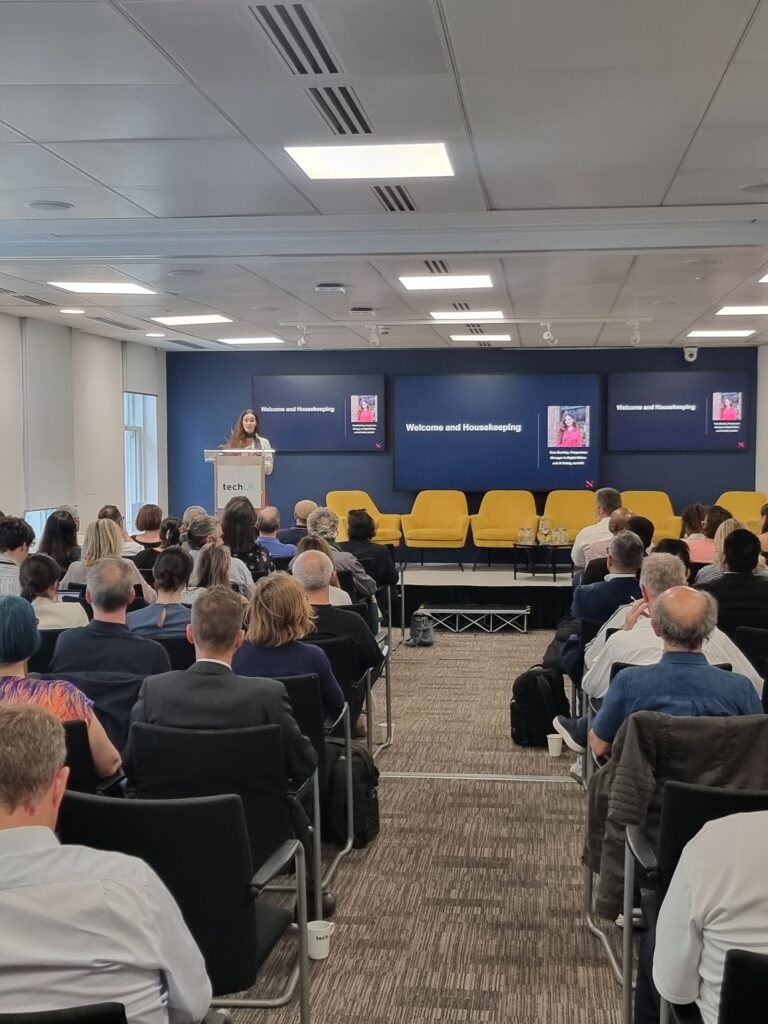
How can we use AI to innovate for human benefit?
June 25, 2025
Key Takeaways:
- Keep People at the Centre: AI should serve genuine human needs, not just efficiency or profit. Designing with empathy and intention ensures innovation delivers meaningful impact.
- Balance Speed with Reflection: As AI capabilities accelerate, we must take time to reflect, question, and iterate. Responsible innovation requires thoughtfulness and care.
- Define the Problem First: Before building AI solutions, we must ask: What problem are we solving? And why is AI the right tool? Purpose should guide development.
- Inclusion Shapes Outcomes: Broad, diverse participation in AI design leads to better, fairer, and more relevant solutions, especially for underrepresented communities.
- Embrace What Makes Us Human: Emotions, creativity, empathy and collaboration are not weaknesses to automate away, they can be powerful sources of insight and value in both decision-making and innovation.
- Design for the Collective, Not Just the Individual: Much of today’s AI innovation centres on personal optimisation (i.e. speed, efficiency, convenience)- shifting towards collective wellbeing, shared purpose, and broader societal benefit can lead to more meaningful, sustainable progress.
Speakers
Martin Allen Morales (CEO, Institute of Imagination)
Dr Hossein Dabbagh (Assistant Professor of Philosophy, NU London)
Daniel Fozzati (Founding partner, The Building Blocks)
Usha Raghavachari (Head of Human-centred design, Ford Motor Company)
Laurie Smith (Head of Foresight research, Nesta)
Kate Thompson (Exited entrepreneur and former ‘Lead Inventor’ Accenture’s innovation)
Workshop
The Fishbowl, Unit 13b The Press Centre, Here East 14 East Bay Lane, London E20 3BS, United Kingdom

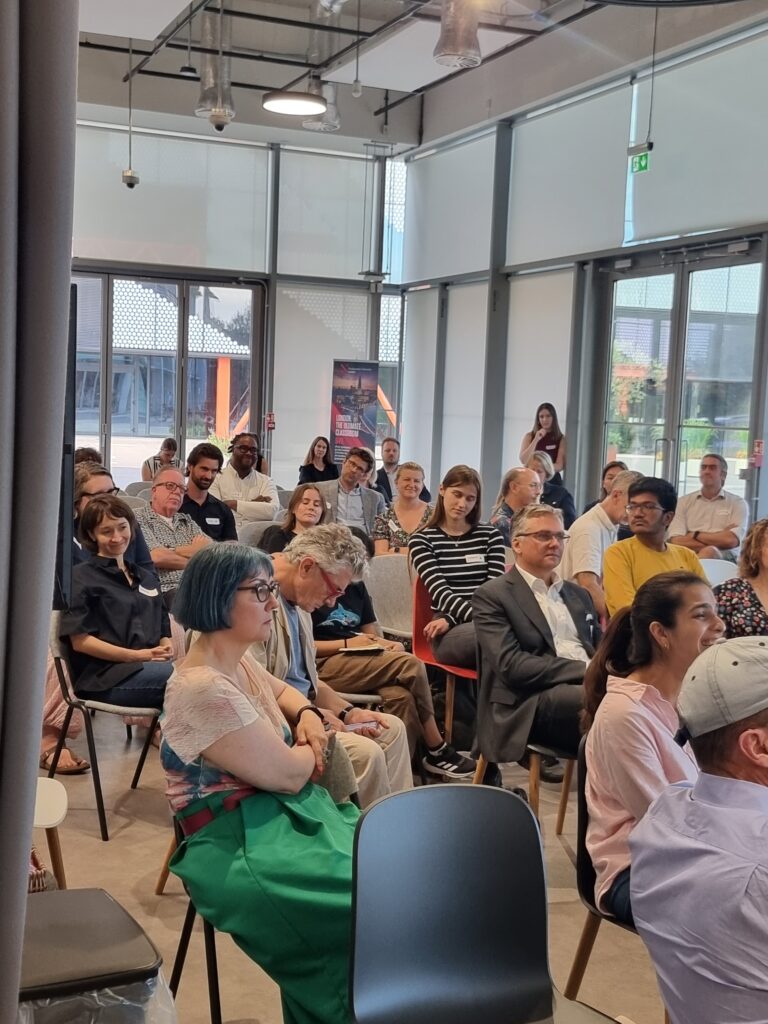
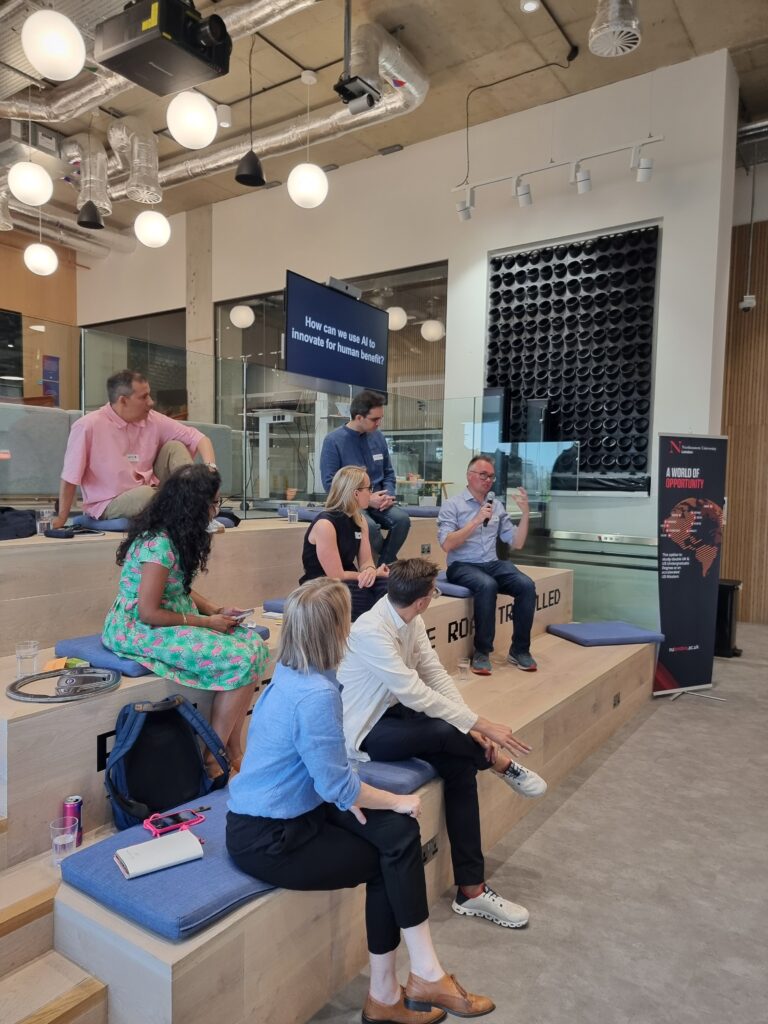
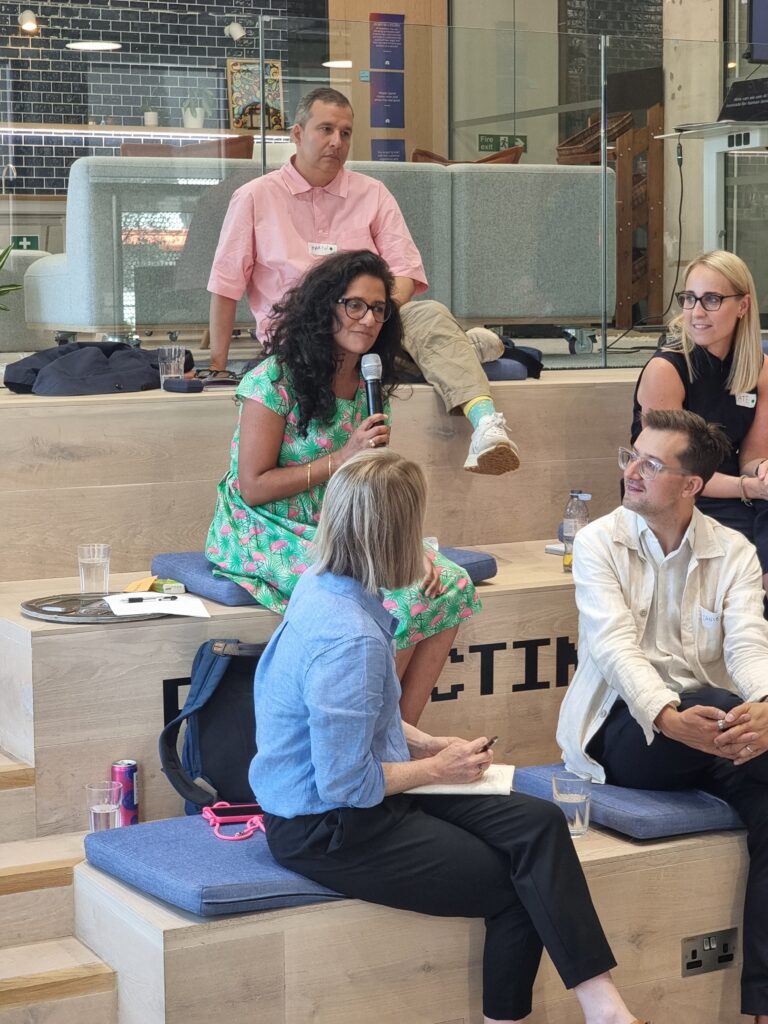

What does responsible education look like in the age of AI?
March 11, 2025
Key Takeaways:
- Purpose-Driven Education: In the age of AI, education’s purpose may need to be redefined beyond jobs, toward life and personal growth.
- AI as a Tool, Not a Driver: AI should support, not replace, human learning and empower educators and students.
- Personalisation with Caution: AI personalisation has value, but risks reinforcing bias, manipulation, and inequality.
- Ethical Design & Responsible AI: Education tools must be co-designed with students, teachers, and parents in mind.
- Skills for the Future: Critical thinking, creativity, and empathy matter more than ever in preparing students for the future.
- Teacher Support & Training: Educators need clear guidance, upskilling opportunities, and tools designed for their real-world challenges, given the pace of change.
- Inclusive Stakeholder Engagement: Responsible educational innovation must meaningfully include all affected groups, especially learners, in shaping policies and tools.
Speakers
Somayeh Aghnia (Co-founder, Geeks Ltd; Co-founder, London School of Innovation)
Dr Kaska Porayska-Pomsta (Professor of AI in Education, UCL)
Maury Shenk (Founder, PlaylistBuilder; Founder & CEO, LearnerShape; Co-Sec, PeopleCert)
Dr Morgan Briggs (Senior AI policy researcher, Turing Institute)
Will Sadler (Senior Product Manager, BCS, The Chartered Institute for IT)
Dr Ioannis Votsis (Professor of Philosophy, NU London)
Workshop
Northeastern University London, Devon House, 58 St Katharine’s Way, London E1W 1LP, United Kingdom
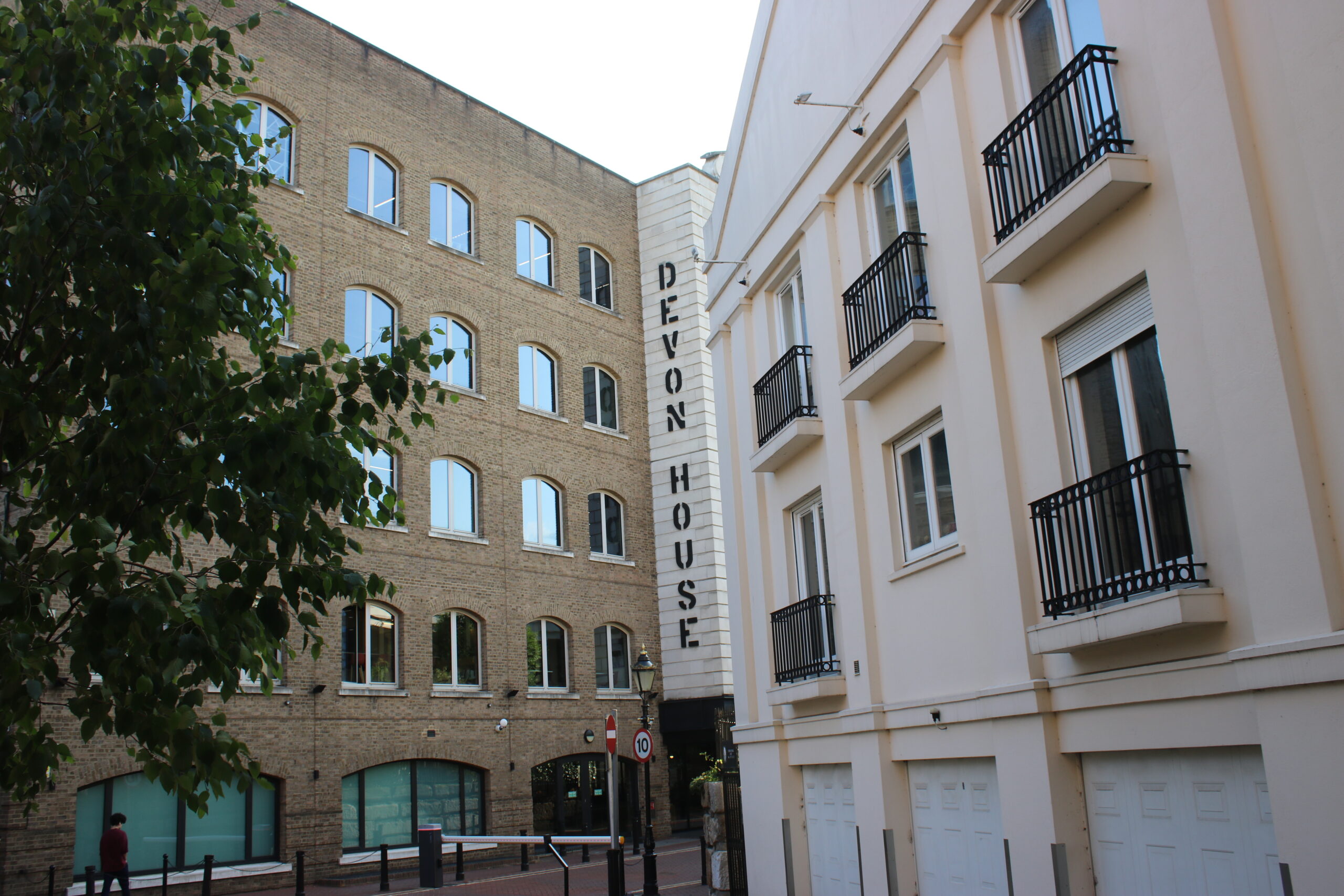

How can AI responsibly transform financial services?
September 26, 2024
Key Takeaways:
- Transformative Potential: AI is reshaping financial services through use cases like enhanced knowledge management, automated reporting, developer productivity, compliance support, and fraud prevention.
- Responsible Adoption: Technical guardrails, careful use case selection, and regulatory awareness (e.g. EU AI Act) are essential to ensure AI is used appropriately and safely.
- Governance and Culture: Organisations should develop internal AI codes of conduct where regulation is unclear, using standards like ISO 42001 and NIST’s AI Risk Framework.
- Workforce Readiness: Upskilling employees and fostering a culture of accountability are key to managing the AI transition effectively.
- Industry Collaboration: A multi-stakeholder, cross-sector approach is critical to setting responsible norms and amplifying impact across financial ecosystems.
Speakers
The Right Honourable Michael Mainelli (The Lord Mayor of London)
Sofia Zanon di Valgiurate (Head of AI Enablement, Corporate and Institutional Banking, HSBC Office of Applied AI)
Rob Garlick (Head of Innovation, Technology and the Future of Work, Citi)
Dr Yali Du (Fellow, The Alan Turing Institute)
Eric Van der Kleij (CEO & Co-Founder, Edenbase)
Workshop
City of London Club, 19 Old Broad St, London EC2N 1DS, United Kingdom
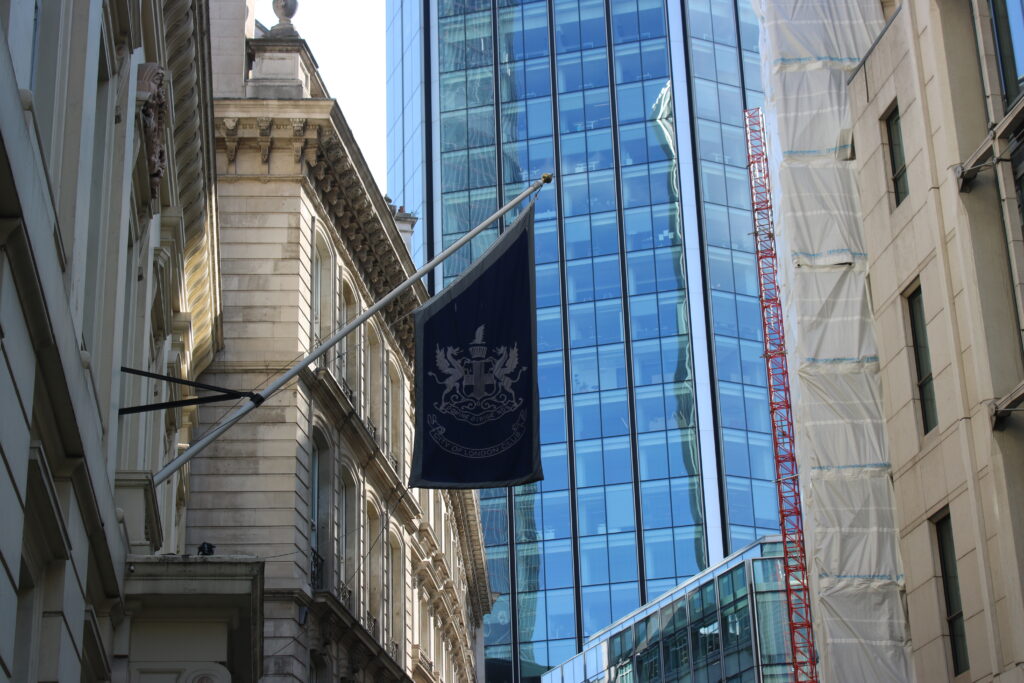
How should humans co-create with AI?
June 13, 2024
Questions Explored:
- Defining Creativity: What does it mean to be creative? Can AI truly exhibit creative agency, or is it always derivative?
- Human–AI Co-Creation: How can humans and AI collaborate meaningfully, responsibly, and ethically in the creative process?
- Impact on Creative Industries: AI tools are transforming fields like music, art, writing, and design- what changes are beneficial, and where are the risks?
- Legal & Ethical Frontiers: Emerging legal considerations around ownership, authorship, and responsibility in AI-generated content were discussed.
- Governance of Creative Platforms: How should AI creative tools be governed and what policies or frameworks might help ensure fair, inclusive, and innovative outcomes?
Speakers
Christian Zimmermann (CEO, The Design and Arts Copyright Society)
Dr Alice Helliwell (Assistant Professor of AI Aesthetics & Ethics, NU London)
Mick Grierson (Research Leader, UAL Creative Computing Institute)
Sam Adeyemi (Product Specialist, Adobe Creative Cloud)
Cliff Fluet (Partner, Lewis Silken LLP; Vice Chair, Help Musicians)
Annabel Gillard (Co-Founder, Conversations on AI)
Duncan Roberts (Thought Leader and Futurist, Cognizant Research)
Kerry Harrison (AI Educator, Course Director at The Chartered Institute of Marketing)
Workshop
Adobe, White Collar Factory, 1 Old Street Yard, London EC1Y 8AF, United Kingdom

What role will AI play in achieving environmental sustainability?
February 20, 2024
Key Takeaways:
- AI as a Force for Good: AI has significant potential to support environmental goals through improved forecasting, energy optimisation, and carbon waste reduction. It can also promote climate justice and encourage more sustainable behaviour among individuals.
- Hurdles to Overcome: Key technical challenges include a lack of transparency, limited explainability, and concerns about algorithmic accuracy. Participants also raised concerns about bias in AI systems and the opaque practices of commercially driven development.
- Paving the Path Forward: There is a need for inclusive innovation that involves communities most affected by environmental and technological change. The urgency of developing globally recognised and standardised methods for assessing AI’s environmental impact was highlighted. Greater transparency, collaborative innovation, and clearer government roles is needed to promote responsible AI use.
Speakers
Dr Aidan O’Sullivan (Fellow, Turing Institute; Associate Professor in Energy and Artificial Intelligence at UCL Energy Institute)
Dr Sebastián Lehuedé (Assistant Professor of Ethics, AI & Society, King’s College London)
Tracy Woods (Co-Founder, Conversations on AI; Head of Life Sciences Consulting, Cognizant)
Jenny Edwards (Principal Sustainability Advisor at Cognizant)
Workshop
Cognizant Worldwide, 280 Bishopsgate, London EC2M 4AG, United Kingdom

